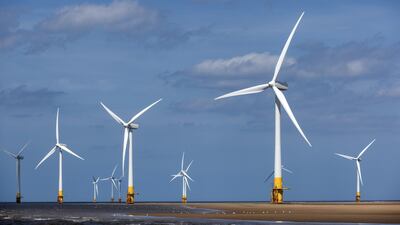Planned winds farms and nuclear sites are currently lacking enough cables to bring generated electricity to homes and businesses, putting major achievements from the sources at risk, an official report has warned.
With current connective infrastructure, wind turbines and solar panels could be left standing idle, leading to higher costs for customers across the country.
The government commissioned the report, written by a former National Grid boss, which says it is “both vital and challenging” to ensure the delivery of new grid connections speeds up.
It takes about 12 to 14 years to get new big transmission lines up and running, roughly twice the time it takes to put up a large wind farm, the report by Nick Winser said.
This is slowing the transition to clean energy as developers of wind and solar farms are having to wait to have their sites connected to the grid.
Britain needs enormous new investment to deliver the clean electricity that will power cars, homes and industries in the future.
Wind turbines, solar panels and other solutions have been popping up all over the country, yet very few transmission lines have been built over the last 30 years.
Green energy sources – in pictures
“Delivering 50 gigawatts of new wind power and 24 gigawatts of new nuclear will be a major step towards decarbonising our economy and providing customers with clean, secure, affordable electricity, but that magnificent achievement will be wasted if we cannot get the power to homes and businesses,” said Mr Winser, the Electricity Networks Commissioner.
“The implications of being able to build wind generation faster than the associated connections to customers will be serious: very high congestion costs for customers, and clean, cheap domestic energy generation standing idle, potentially for years.
“I believe that we must … reduce the overall timescale to seven years.
“I am confident that this is achievable as long as we streamline the process as proposed in the report; and take a transparent, respectful and efficient approach when engaging with people and communities about the impact.”
The report included a series of recommendations of steps for the government and regulators to take.
“Our electricity network is the single biggest barrier to delivering a zero-carbon power system by 2035,” said Dan McGrail, chief executive of trade body RenewableUK.
“So we’re pleased that this timely report puts forward a series of constructive measures to speed up the pace at which the UK builds vital new grid infrastructure.
“These recommendations will benefit bill payers across the country by ensuring that we maximise the vast quantities of cheap, clean power we’re generating from renewables, and that we can get it to British homes and businesses more efficiently.”







